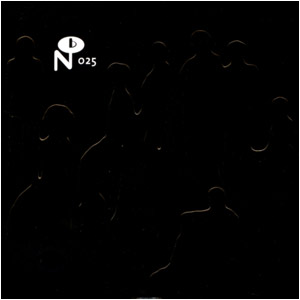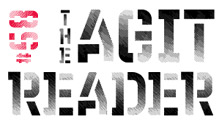
Gone: The Promises of Yesterday
Numero Group
In this space, we’ve covered many of the Numero Group’s soul record unearthings. The backstories to these records often bear striking similarities in their tales of talent trumped by lack of money, mismanagement and personal demons. With the musical landscape in America in the ’60s and ’70s being dotted with small labels putting out singles by regional acts, the obscurity of the music is simply a matter of the records never having much distibution or promotion in their time and thus never making a mark on a national level.
With 24-Carat Black, however, it seems like all the pieces for success should have been in place. The combination of a large ensemble from Cincinnati originally bankrolled by basketball great Oscar Robertson and a classically trained protege with work on Isaac Hayes’ Hot Buttered Soul already under his belt should have been an R&B dream team in the making. Stax thought so, and paid for and released the band’s first album, Ghetto: Misfortune’s Wealth.
The problem seems to have been Dale Warren (the protege). Driven by an idiosyncratic vision of shaping soul into the form of a classical suite, Warren effectively sabotaged the debut from the get-go, refusing to edit any of the record’s cuts down to a radio-friendly length. With Stax unable to properly market the album, it was dead in the water, and the majority of the band jumped ship while out on the road in support of it.
Warren eventually recruited new members to fill in the holes in 24-Carat, and set about recording an equally ambitious follow-up. Before the album was completed, however, Stax had closed up shop, and unable to pay for the accumulated studio time, Warren gave up the ghost. The tapes for that not-to-be second album ended up in organist Bruce Thompson’s basement, left to rot.
The aspirations of Warren and his group of collaborators weren’t completely for not. Though only six tracks were able to be resuscitated from the decomposing tapes, it’s enough to show that the band’s talent wasn’t outdone by the scope of their ringleader’s ambition. The leadoff cut, “The Best of Good Love,” is a moody song that perhaps best exemplifies Warren’s vision, a meticulously orchestrated slow build that places the vocals of Princess Hearn at the center of a darkened swirl. Only 16 years old (and the much older Warren’s wife) she sounds wizened beyond her age, a heartfelt belt that seems to draw on experiences much deeper than a teenager should know.
The subsequent track, “I Want to Make Up,” follows a similarly dimly lit road. Full of elegiac atmosphere divined from minimally applied instrumentation, the song comes off more wicked as a result of Robert Dunson’s spoken counterparts to Hearn’s singing. With lines like, “I'm too good for you, dig it?” Dunson’s part plays more like some kind of slick-backed pimp instead of a man worthy of Hearn’s pining. On “I Don’t Love You,” however, the 24-Carat Black band is given greater rein, the song blossoming into a hypnotic melding of repetitive refrains and horn-accentuated groove. While “I’ll Never Let You Go” has the making of a hit were it not for its lascivious middle refrain, it’s the title track that takes the cake. Here Warren shows the scope of his arrangements, letting the song build at an unhurried pace into an impressive melding of Afro rhythms and funk-laden horns. The six tracks aren’t representative of any sort of lost ark of soul, but represent an interesting case of matter winning out over mind nonetheless.
Stephen Slaybaugh
PAST PERFECTS
Book of Love, Book of Love, Lullaby, Candy Carol and Love Bubble
The Scene Is Now, Total Jive
REM, Reckoning
Black Rio 2: Original Samba Soul 1971-1980
Pisces, A Lovely Sight
Big Star, #1 Record/Radio City
Mirrors, Something That Would Never Do
Various Artists, Smart's Palace
Miles Davis, Sketches of Spain
39 Clocks, Zoned
Company Flow, Funcrusher Plus
Nick Cave & the Bad Seeds, From Her to Eternity, The Firstborn Is Dead, Kicking Against the Pricks, and Your Funeral... My Trial
Stark Folk, Stark Folk
Dntel, Early Works For Me It It Works For You II
